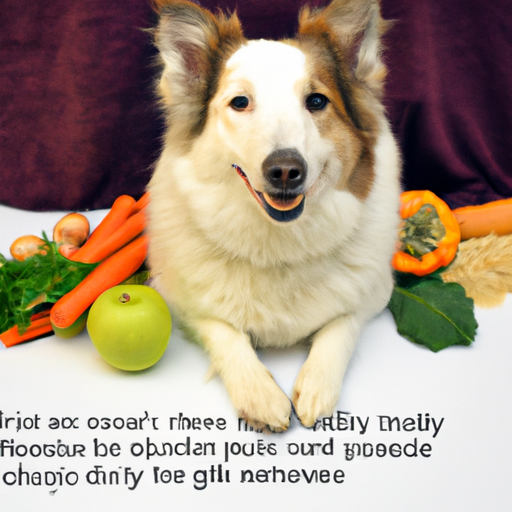As a caregiver to your furry friend, you may often wonder about the kind of human foods that you can safely share with them. In this guide, we will walk you through some of the human foods that are not only safe for dogs but can also provide them with essential nutrients.
H2: 1. Fruits and Vegetables
Fruits and vegetables are an excellent source of vitamins and minerals for dogs, just as they are for humans. Some dog-friendly fruits and vegetables include:
- Apples (ensure to remove the seeds)
- Bananas
- Blueberries
- Carrots
- Cucumbers
- Green Beans
- Oranges (in moderation)
- Peas
- Spinach (in moderation)
However, not all fruits and vegetables are safe. Avoid feeding your dog with grapes, raisins, onions, garlic, and avocados, as these can be toxic to them.
H2: 2. Lean Meats
Lean meats are an excellent source of protein for dogs. They can be fed as is, or used as ingredients in their meals. Ensure that they are cooked properly and are free from bones and excessive fat. Some suitable choices include:
- Chicken
- Turkey
- Fish (such as salmon or tuna)
- Beef
H2: 3. Dairy Products
While some dogs are lactose intolerant, others can tolerate dairy products in moderate amounts. Some safe options include:
- Low-fat yogurt
- Cheese (in small amounts)
Remember, too much dairy can cause digestive issues in dogs, so it’s best to introduce these foods slowly and watch for any adverse reactions.
H2: 4. Whole Grains
Whole grains are beneficial to dogs as they provide them with necessary fiber and other nutrients. Safe options include:
- Brown Rice
- Oats
- Quinoa
Avoid feeding your dog with foods that contain white flour as it can lead to obesity and other health issues.
H2: 5. Nutritional Supplements
In addition to whole foods, certain supplements can be beneficial for dogs. For example, fish oil can support their heart health, and glucosamine can aid in joint health. Always consult with a vet before adding supplements to your dog’s diet.
| Supplement | Function |
|---|---|
| Fish Oil | Supports Heart Health |
| Glucosamine | Supports Joint Health |
| Probiotics | Supports Digestive Health |
| Multivitamins | Provides Essential Vitamins and Minerals |
Frequently Asked Questions (FAQs)
Q1: Can I feed my dog spicy foods?
No, spicy foods can upset your dog’s stomach and lead to diarrhea and vomiting.
Q2: Can dogs eat chocolate?
No, chocolate is toxic to dogs and should be avoided at all costs.
Q3: Are nuts safe for dogs?
Some nuts, like peanuts and cashews, are safe in moderation. However, others, like macadamia nuts, are toxic.
Q4: Can dogs eat raw eggs?
Raw eggs can carry Salmonella or E. Coli, so it’s best to cook eggs before feeding them to your dog.
Remember, when introducing new foods to your dog’s diet, always start with small amounts and observe for any adverse reactions. Always consult with your vet if you have any questions or concerns about what to feed your dog.



